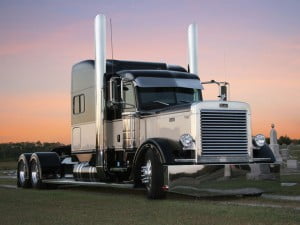Claiming Your Car as Homestead in Bankruptcy
As an unfortunate side effect of this recession many previously gainfully employed individuals are finding themselves living in their vehicles. This situation has created scenarios where bankruptcy trustees must decide if a debtor can claim the homestead exemption on their vehicles under the bankruptcy law. Such was the case of a debtor who moved out of his apartment and moved into the sleeper cab of his Peterbilt truck (which was also his sole source of income) 10 months before filing Chapter 7 bankruptcy . The debtor wanted to claim the truck as a homestead and exempt the equity in the vehicle but the bankruptcy trustee objected.
These were the findings of the bankruptcy court:
- If the Peterbilt were immobile and constantly remained in-place in Corfu, it would be exempt as the Debtor’s “homestead” because N.Y. Statutes § 324 commands that exemption statutes be “should receive an enlarged and liberal construction.”
- The Peterbilt is not immobile, and is used by the Debtor as his sole source of income, and therefore is clearly exempt to the extent of $600 as “necessary working tools and implements.”
- Because the Debtor has claimed a “motor vehicle” exemption as to the Ford (another vehicle the debtor owns), he may not claim the $2400 exemption as to the Peterbilt.
- As to the remainder of the equity in the Peterbilt, two-thirds is his exempt “homestead,” and one-third is a non-exempt, income-producing asset, from which his creditors may recover their losses.
The bankruptcy court went on to suggest that the bankruptcy trustee allow the debtor to file Chapter 13 bankruptcy and repay his creditors over time if he could prove that his business was viable. But it isn’t likely that the debtor could prove that his business is viable or that he could fund a Chapter 13 bankruptcy repayment plan considering the fact that he could not even afford to pay for an apartment. It’s important to note that the debtor may have been allowed to claim the vehicle as a homestead if it were mostly immobile and if it was not used primarily as his sole source of income.
